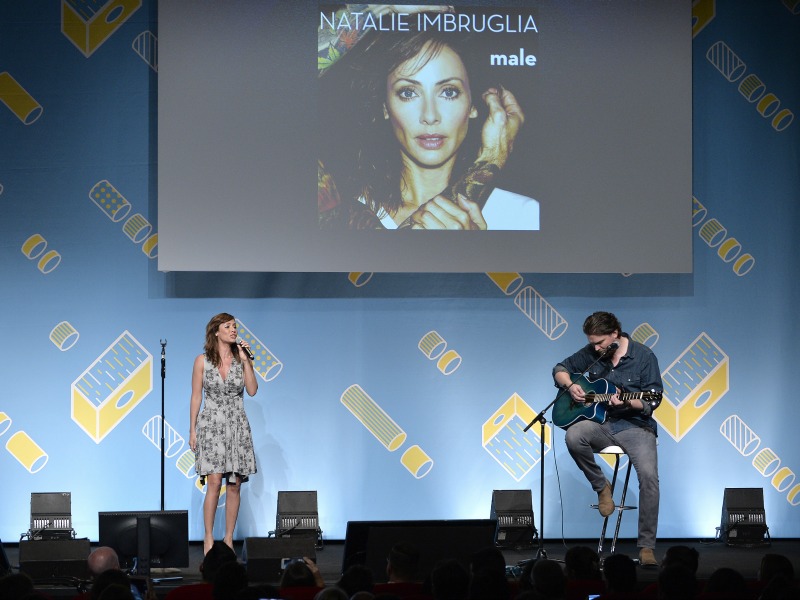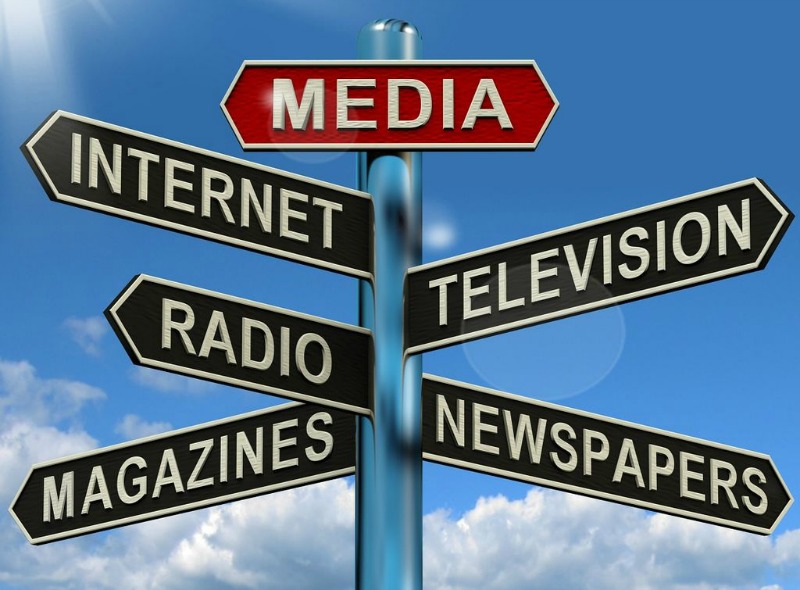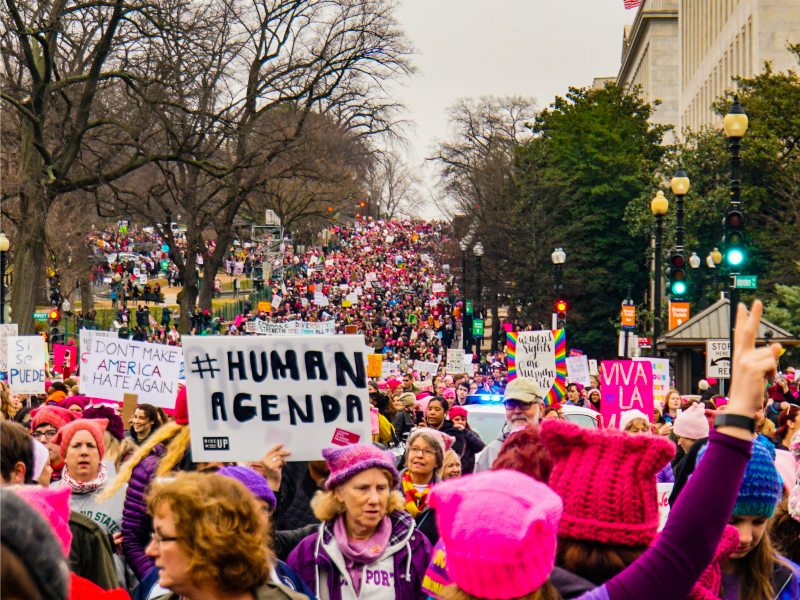Paul Holmes 23 Jun 2015 // 5:50AM GMT

CANNES—Over the course of about 20 minutes, public relations agency Ketchum and its client Pernod-Ricard negotiated a (fictional) deal with singer/actress Natalie Imbruglia and her agent under which the company would become a sponsor of Imbruglia’s upcoming tour and the artist would become a spokesperson for the Avion tequila brand, providing a fascinating, fast-paced glimpse into the way these deals get done.
While the deal is a mere simulation, both brands are real: Avion was initially introduced during the HBO television series Entourage, and has been growing quickly despite distribution challenges and increased competition from both traditional brands and new custom tequilas; Imbruglia is a brand herself, and has a track record working with brands such as L’Oreal (“they really understood me as an artist,” she says) and high-end jewelry company Kailis, and is currently developing her own skincare line. She also has a new album coming out soon, with plans for a tour.
The conversation began with a suggestion from Jeff Straughn, founder and CEO of Brand Synergy Group and Imbruglia’s representation, that “Avian could be perfect for upcoming tour.”
The first question from the client: “Are you a tequila drinker?”
Natalie: “Absolutely I am a tequila drinker. But I also think the music would be a great fit for this promotion.”
Jeffrey Moran, vice president of public relations, events and sponsorship for Pernod Ricard, wanted to go beyond a tour sponsorship: “We want an original composition that could be the sound of the brand.”
Straughn: “We would prefer to focus on the single, Instant Crush, not a song that is not ours. Tour sponsorship makes a lot of sense. But there’s a third element, which is that in a lot of things Natalie has done sharing is very important.”
Natalie: In the work we did with Kailis, that included a contribution to the charities I support.
Moran: “Pernod-Ricard is very committed to charity, but as a liquor company we have to be careful about associations. But we are very happy to work together on that front.”
The next challenge is deciding the length of the deal. The company is ready to commit to a single year, while Natalie wants a more long-term commitment, a three-year deal. “I am sure if will be 10 years,” says Ketchum Sounds executive vice-president Marcus Peterzell. Natalia suggests two years. Pernod agrees, with a third year thrown in “if we hit our sales targets.”
The geographic scope of the assignment is the next issues. Pernod wants global rights, even though Avion is not currently a global brand. Straughn argues that “global rights in territories where you don’t sell is unfair to Natalie.” Natalie is more interested in whether the brand is currently distributed in her native Australia and is shocked to learn that it is not.
Natalie: “I could do the launch.”
An agreement is reached that the scope will include all the territories in which the brand is available—and Pernod will commit to the Australian market.
And so on to Imbruglia’s media commitments:
Peterzell: “We are a PR agency and we think press is important to the launch. We want 8 to 10 media days, and 10 to 12 social media posts.
Straughn wants more background: “What does a full PR day involve?”
Peterzell: “An eight-hour day not including travel.”
Straughan: “You cover all the costs?”
Peterzell: “Of course.”
Natalie has concerns. She will be touring and promoting an album over the next 12 months, and is worried about a big time commitment. Straughn suggests four media days, but promises his client will do more if she is available. “On social side,” he argues, “less is more if you want it to sound sincere and credible.” The agreement is four days, but Natalie promises she will make herself available for special opportunities if she can. “It’s a partnership,” she says.
Music clearances are another issue, because Sony is the publisher, and Straughn cannot guarantee what Sony will do—though both he and Imbruglia are confident there won’t be any problem. Straughn promises to work closely to facilitate the rights. Peterzell wants an out if the company is being unreasonable, and both Natalie and her agent are cool with that, confident that everything will work out.
Next up, artist approvals:
Peterzell: “Any creative that uses Natalie’s name or image we will send to you for approval. But we can’t give you approval on what the ad agency does with the rest of the campaign.”
Natalie: “What if my face is on a big cheesy billboard. Want to have control over my image if it conflicts with my brand.”
Straughn: “We have to have some input. It’s a good thing that Natalie wants to be involved….”
Moran: “We are open to this.”
Peterzell: “You’ve seen our branding. You should be comfortable with the branding. If you weren’t, you wouldn’t want to be in business with us.”
What about exclusivity?
Peterzell: “You are going into business with Pernod-Ricard, which is a global spirits company. That leaves you free to pursue any non-alcoholic beverages.”
Straughn: “We’re talking about a tequila brand, why would we be excluded from working with a wine company?”
Peterzell: “Because Pernod-Ricard also sells wine.”
Natalie: “I want to protect myself. If I am at a charity event and they only serve wine and someone catches a photo of m1e with a glass of wine in my hand….”
Peterzell: “That’s fine. But if someone gives you a glass of Patron with the name of the brand on it, that would be a problem.”
Natalie: “I wouldn’t do that.”
Straughn: “We go to a lot of events—like the Grammys for example—that may be sponsored by your competitors.”
Peterzell: “That’s fine. But if there’s a Grey goose logo on the red carpet, don’t pose for photos in front of it.”
Ultimately, Ketchum and Pernod-Ricard agree to take wine out of the contract, excluding only other spirits brands. Which brings us to the final—and presumably—trickiest area of negotiation: compensation. A number is written on a piece of paper and passed from Ketchum to Imbruglia.
Peterzell: “This is our budget and the budget is the budget.”
Natalie and Straughn laugh. Straughn: “You are asking for a lot. You are looking for a tremendous amount of effort and we are giving up a lot of opportunities. We think you have to double this.”
Peterzell: “That’s not going to happen. We could go maybe 20 percent.”
Straughn: “If we say 25, maybe we can do this.”
Moran: “Can we split the difference?”
Natalie: “And a case of tequila.”
And so the deal is done.
It’s difficult to assess how “real” the simulation was. Pernod-Ricard was keen to get to “yes,” and Imbruglia was the personification of reasonableness. There were no lawyers in the room. And everything was being done in front of a live audience.
But as a glimpse into the process it was a fascinating and entertaining 20 minutes—as much fun as anything at Cannes on this Monday, and capped with an acoustic performance of Imburglia’s new single, which for many was the highlight.


































.jpg)


.jpg)
















